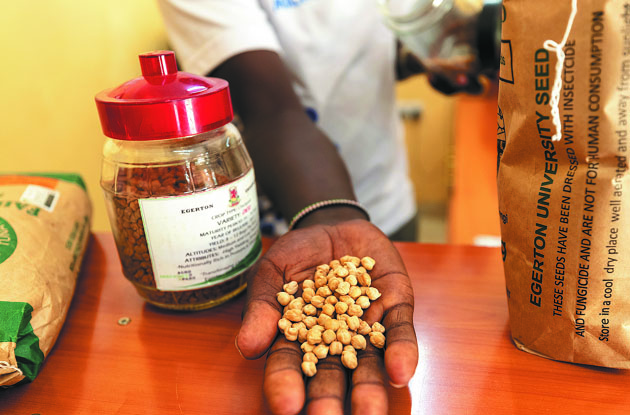Molecular laboratory injects momentum in boosting crop production


Raising profile
"At the institutional level, the lab has raised our profile as a university because we have a state-of-the-art laboratory which many institutions lack. We have, therefore, become a collaborative training center for other institutions in the region," Mulwa said.
Since the lab was established in 2019, six PhD and 13 master's students have graduated from the department. Currently, eight PhD and 16 master's students are in session. Through the research by these students, the university has been able to develop numerous varieties of crops that are passed down to local farmers to help solve problems like drought, diseases and yields.
Bernard Nyongesa Sichangi, a master's student in plant biotechnology, said the lab has played a great role in helping him attain his career objectives of contributing to increased food production and development of climate-smart crops in the country.
"In my current project, I am working on cassava tissue culture in order to produce enough and high-quality planting material for farmers.… We also have experts from China at the university to train us on how to use the equipment in addition to online classes we conduct in collaboration with Nanjing Agricultural University," Sichangi said.
To make their research complete, Egerton has also established an Agro-Science Park whose overall mandate is the promotion of innovations, products and services developed at the molecular lab to be commercialized and linking the research with industry for uptake of these products.
Paul Kimurto, the Agro-Science Park director, said Nanjing Agricultural University funded the park to the tune of $130,000 to enable them to convert their research into real solutions for farmers.
"The Agro-Science Park is expected to transform the products from research into commercialization. We, therefore, engage farmers by training them and carrying out demonstrations on how to get the best out of the products we come up with," Kimurto said.
According to Liu, since its establishment, the lab has hosted several short virtual training sessions in conjunction with Nanjing Agricultural University and the lab's capabilities have been steadily improving, with staff and students benefiting from collaborations with international molecular biology and biotechnology experts.
He added that such collaborations have led to a better understanding between Kenyan and Chinese people, citing the establishment of the Confucius Institute at Egerton in 2012.
He urged both sides to focus on the many strengths they share instead of focusing on differences as they work toward a shared future.


















